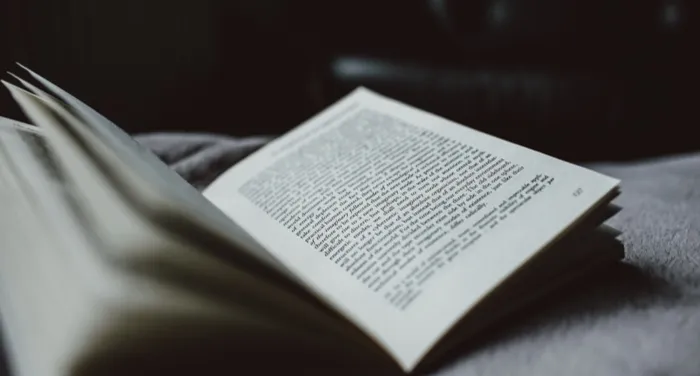
Reading Less, Living More: Dispatches From a Pandemic Reading Life
Last August, I wrote a personal essay for Book Riot about how I still felt safe at my local library, even during a pandemic. The essay was, in fact, more about my own struggles with mental illness than anything else, and how despite a raging global health crisis and a plethora of people who didn’t seem to care because it was summertime — government included — I still managed to find some of the peace and calm I always found at the library in my past life. The article ended up causing quite a stir of controversy across social media, mostly from American librarians who most likely only read the headline and interpreted me as just another American who didn’t care about the massive health threats just about every industry has faced by opening their doors to the public. (I’m Canadian, just by the way — other countries do exist — where this crisis has been handled just a little bit better than my neighbors to the south.)
There was a viral Twitter thread about it and a slew of nasty comments directed at me for what felt like daring to talk about my mental health instead of prioritizing the risks American librarians have been taking at their workplace. It was especially frustrating since last summer was one of the worst periods for my mental health during the pandemic, and while I’ve managed to be fairly open about my struggle with mental illness over the last few years, I wrote that article during a time where every day felt like either waking up in a panic spell or a struggle to get out of bed. I wanted to capture the feeling of being able to re-enter the library after the very first months of lockdown and isolation, and how even though I might still be a ball of nerves and panic in every other public place, the library managed to still feel like the one spot where I could breathe the slightest sigh of relief, while still remaining ever-vigilant. And then internet trolls had to ruin it a bit. But, welcome to life on social media.
Capturing the experience of my reading life throughout the pandemic has been an interesting one, and I’ve continued to use the controversy that first article ignited as a way to fuel the writing fire within me to keep going. (I do always try to acknowledge my privilege in everything I’ve written about the pandemic.) This crisis has changed absolutely every aspect of my life for better and for worse, and I’ve always tried to think of the ways that it has transformed my reading life. Because who are we here on this feed if not readers for life?
I was particularly inspired by my fellow Rioter Laura’s piece on how to read less, since that’s really not something we talk about enough in the literary community. I myself have previously written about how, during the pandemic, I’ve broken up with my TBR pile, pondered why I define myself so strongly by the amount of books I read, and finally how I started to read slower than before. Laura mentioned how the lack of social commitment caused by Miss Rona had given her the opportunity to stay home and read for 12 hours at a time in the dead of winter, whereas my experience was something of the complete opposite: it was the newfound work-from-home life that caused me to finally stop and acknowledge the toxic speed at which I used to consume literature.
In my past life, when there was never the threat of the library having to close and only be available in an incredibly limited capacity, I read — to borrow a phrase from Mary Oliver — like my life depended on it. Because in many ways, it did. I don’t think I would have figured out the grownup I wanted to be if it hadn’t been for my college years where I filled every single solitary silence by what I thought was reading for pleasure. But the social isolation of the last year taught me that maybe the speed at which I used to blow through books wasn’t really benefitting anyone anymore. If it hadn’t have been for the panic spells and intrusive thoughts caused by the silence of the last year, I don’t think I would have ever had to confront the way I used to read. (Or confront the ways I used to do everything, pretty much.)
For the first few months last year, I couldn’t understand why I no longer had the bandwidth to sit and read in the living room all day. I felt like I wasn’t getting enough reading done by only doing it at night before bed, even though there weren’t a lot of books to get through anymore. I realized that I had to stop using reading as a way to outrun whatever existential crisis or anxiety I’d become accustomed to feeling at any given time — especially when the personal crises I was experiencing last year were caused by something so far out of my control. Not to mention the fact that when you blow through the pile of books you just bought and don’t have the library to browse books for free, it’s more than fine to slow down. Besides, every English teacher I’ve ever had has turned out to be right: you enjoy the books more when you take your time.
Who I’ll be on the other side of this pandemic still remains very much to be seen, but I do know exactly who I don’t want to be: someone who rushes through life to avoid any negative feeling that might knock me sideways, because clearly that’s going to happen whether I like it or not. And after all, life has proven itself too fragile and precious to take for granted the things we love most: books.














